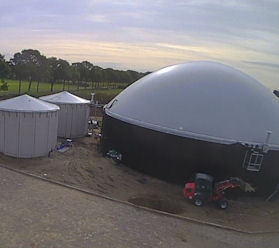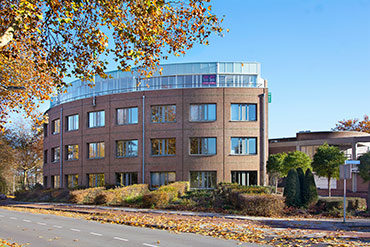Renewable energy is in great demand in society. Renewable electricity is doing well. The wind farms at sea and the solar farms on land are bursting at the seams. Renewable heat and gas are not doing as well. Resistance to wood-fired installations is growing, while the subsidy for co-fermentation has been reduced. The government’s focus is on monofertilizer fermentation installations. On a farm scale, it is difficult to make these financially feasible for the smaller farms, while there is a large resistance to large-scale manure processing. So does community manure fermentation offer a solution?
Community manure fermentation
Community manure fermentation is actually what the word says. The manure in a local community is fermented collectively. The advantage is that a single installation is sufficient. If necessary, a large post-storage facility can be built in a foil basin. It is important that the transport costs of manure to and from the digester are as low as possible. 20,000 tonnes of manure are required to achieve the maximum annual biogas production of 40 m³ per hour. By starting with solid manure, this quantity can be reduced, but then the manure has to be separated again in a decanter afterwards. Otherwise, you convert solid manure into liquid manure, which usually doesn’t do the the feasibility of the project any good.
Example Biogas I Partnership
Green gas is produced here using our own gas scrubber installation: the Bio-UP. This innovative system has been developed by CCS and makes it possible to convert biogas to green gas on a farm scale. The system is energy efficient because little methane gas is lost in the process. In addition, the Bio-UP works under low pressure, the system is low-noise and there is little wear and tear on the components. The Bio-UP is the installation that pays off on a small scale.
The future
CCS aims to make mono-manure fermentation a standard solution in the future. The Biogas I partnership in Lutten is the beginning of this larger idea. We are striving for a future in which all cattle farms ferment their own manure. This is not only financially good for the farmers, but also helps to make the agricultural sector more sustainable. As an indication, the 20,000 tonnes of cattle manure that the installation in Lutten is going to ferment avoids a total of 1,000 tonnes of CO₂ emissions per year. If we ferment all cattle manure on a national scale, the impact on Dutch CO₂ emissions will be almost 1.5%.
About this article
3 July 2020 / Author: Dr. Ir. René Cornelissen


